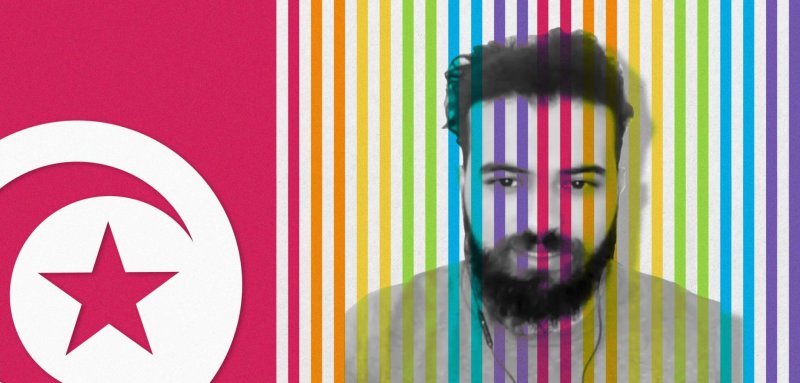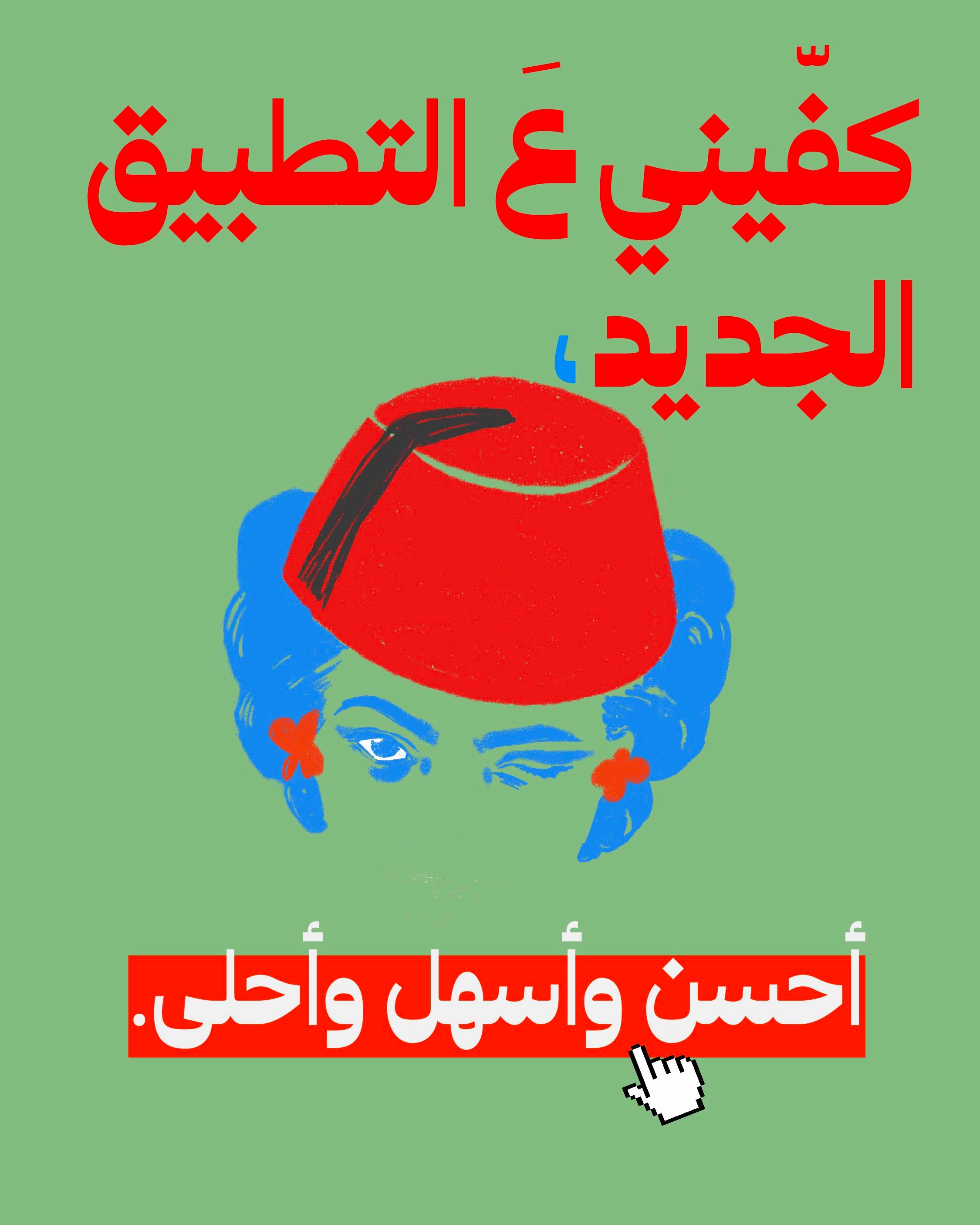Ramy Ayari’s cyber activism led him to work on a number of campaigns, but none of them had the same impact as the campaign he led against Nizar Affes – a Tunisian, resident in the UK, notorious for hate speech against LGBT people in Tunisia. That campaign helped in the arrest of Affes by Leicestershire Police, relating to his online incitement of violence and hate against the LGBT community.
During an interview on Tunisia’s AttessiaTV in late February, Affes stated that he started off by posting “comedic” commentary on Tiktok against what he deems “indecent” behavior by LGBT Tunisians, while he was in Covid-related lockdown in the UK. It was not possible to reach Affes for comment through his social media accounts as they have been suspended, his YouTube channel, the only remaining account, only lists those suspended accounts.
“It started in the first confinement. I was sitting at home without anything to do. I thought what could I do to pass 6 to 7 months at home … So I thought why not do reactions on these [LGBT] people,” said Affes, better known by his social media moniker “Lapa”, during his TV interview.
According to Ayari, “Lapa,” is believed to have had as many as 150,000 Instagram followers and 88,000 Facebook followers before his accounts were suspended. In the TV interview Affes claims: “NGOs are working against me and people are paying money to remove my first Instagram [account], the second, the third, the fourth, a Facebook page, YouTube [channel], and again a Facebook page.”
In a 2020 survey conducted by a number of NGOs in the Middle East, 61.7% of respondents in four countries including Tunisia said they were victims of a cyberattack or cyber bullying. Furthermore, 46.8% said the cyberattack turned into physical violence, although almost 40% of the survey respondents chose not to answer this question.
“It’s not one or two influencers, it’s a group of people who constantly try to use shaming and hate speech,” says Dima Samaro, a Middle East and North Africa policy analyst at Access Now, an NGO that defends the digital rights of people around the world.
Before his accounts were suspended, Lapa would regularly draw on videos and images of people in Tunisia – some underage – whom he perceived of as “feminine” or “gay.” Beyond abusing and shaming them, Lapa also routinely called on his followers to mock them and asked that people physically assault them if they see them “in real life.” Although Lapa’s accounts are no longer visible, others have shared or reposted some of his content online.
Before his accounts were suspended, Lapa would regularly draw on videos and images of people in Tunisia whom he perceived of as “feminine” or “gay” routinely called on his followers to mock them and assault them if they see them “in real life.”
According to Ali Bousselmi, Executive Director of Mawjoudin, a pro-LGBT Tunisian NGO, Lapa went further than most by coining new, derogatory terms in the Tunisian dialect to describe people who are gay, as well as fashioning other, new insults directed at LGBT people. These terms caught on, Bousselmi says, and were reused and amplified by others. Klay, a famous Tunisian rapper, for example, used one of Lapa’s derogatory terms in one of his songs, which brought Lapa’s hate speech to a whole new level and audience.
In his interview with AttessiaTV, Lapa confirmed that he was under investigation by the police. The police investigation has been greeted as a victory by Ayari and his fellow LGBT activists. Ayari believes that his campaigning had at least some role in the police launching its investigation.
In an emailed statement in response to Raseef22’s questions, Leicestershire Police confirmed the arrest and said: “On 19 December last year a member of the public reported an incident of malicious communications after viewing a video which caused alarm and distress to the caller.” As a result, the police added, “[an] investigation was launched and a 28-year-old man from Leicester was arrested on suspicion of using threatening words/behaviour intending to stir up sexual orientation hatred.” The police said he is currently released on bail and enquiries around the case are still ongoing.
Lady Samara, another Tunisian, anti-LGBT social media influencer with a large following on Instagram, is also accused of posting anti-LGBT content on her accounts. Despite this, she has not faced any charges because she is in Tunisia and there is no legal framework there that activists can rely on to compel her to cease her actions. Lady Samara did not respond to a request for comment by the time of publication.
Lady Samara, another Tunisian, anti-LGBT social media influencer, is also accused of posting anti-LGBT content. Despite this, she has not faced any charges because she is in Tunisia and there is no legal framework for activists to rely on.
Lapa’s arrest in the UK and Lady Samara’s anti-LGBT postings both serve as a reminder that police interventions against hateful targeting of Tunisian LGBT are only possible, for now, in foreign jurisdictions.
A draft cybercrime law is still under review by the Ministry of Justice (MoJ) in Tunisia, according to Dr. Aymen Zaghdoudi, a legal advisor at Article 19, a UK-based organisation working on issues relating to the freedom of expression and access to information. Samaro, of Access Now, says that her organisation has requested a draft of that law from the government but were told that a draft cannot be shared as they are “working on amendments.” That was in September 2018. No update on the draft has been announced since then.
In the interim, Dr. Zaghdoudi says, other laws – such as Article 86 of the telecommunications code or Article 52 of the press code – “can and are being used in attempts to limit or prosecute online hate speech.” But that is not an ideal tool to push back against anti-LGBT voices online.
“Such legal [codes] are not interpreted to protect LGBT [people] as homosexuality is still considered a crime [in Tunisia], based on the article 230 from the Tunisian penal code,” Dr. Zaghdoudi says in an email response to questions sent to him. “Therefore, it’s not logical to penalise homosexuality, on the one hand, and prosecute homophobic speech on other hand.
The first step to protect LGBT [people] from hate speech is to repeal article 230 from penal code as it gives legitimacy to the haters.”
Indeed, the criminalisation of homosexuality poses a risk to LGBT people who choose to report cyber bullying and harassment to Tunisian authorities. Rania Amdouni, a prominent LGBT activist was arrested in February 2021 outside a police station after they denied her request to file a complaint against cyber abuse and harassment she faced, including by police union Facebook pages. Instead, Amdouni was accused of “insulting a public officer during the performance of his duty” among other charges after she shouted on policemen. The appeals court vacated a 6-months jail term and a fine last month. Such cases illustrate the reluctance of LGBT people to report cyberattacks against them, Samaro said.
The criminalisation of homosexuality in Tunisia poses a risk to LGBT people who choose to report cyber bullying and harassment to the authorities.
For Ayari, who resides in Canada, even if Tunisian authorities do not take action against influencers who incite violence against LGBT people in Tunisia, complaints must be filed, nonetheless.
“At the very least, we must keep the pressure on,” he says.
رصيف22 منظمة غير ربحية. الأموال التي نجمعها من ناس رصيف، والتمويل المؤسسي، يذهبان مباشرةً إلى دعم عملنا الصحافي. نحن لا نحصل على تمويل من الشركات الكبرى، أو تمويل سياسي، ولا ننشر محتوى مدفوعاً.
لدعم صحافتنا المعنية بالشأن العام أولاً، ولتبقى صفحاتنا متاحةً لكل القرّاء، انقر هنا.


